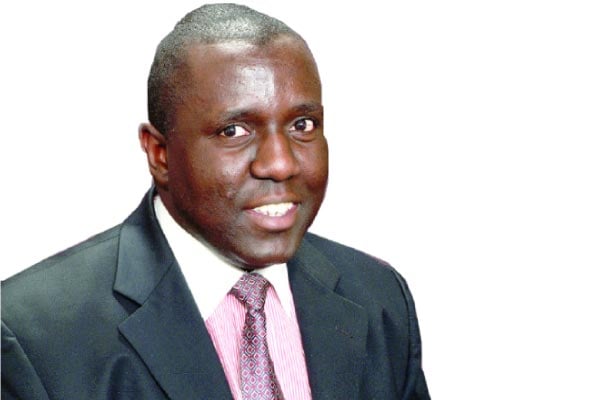Prime
Climate hell, fiscal cliff, other expressions dominate as the year 2022 comes to a close

Author: Mr Karoli Ssemogerere is an Attorney-at-Law and an Advocate.
What you need to know:
Volatility in commodity prices are a big issue in economies that have failed to diversify producing a lot of wealth and poverty in equal measure. Ask Nigeria.
UN Secretary General Antonio Guterres read the final epitaph to COP27, the Sharm el Sheikh Conference on climate change declaring climate describing the world coming to terms with the reality of the climate crisis, natural disasters, extremes of temperatures, flooding that have come to define everyday life as “climate hell”.
He had a lot to pick from in 2022. Pakistan home to more than 225 million people experienced deadly floods across the country even though it only contributes less than one percent to carbon emissions.
Australia, has wildfires. The Florida peninsula has seen many hurricanes touching down, leaving one of the fastest growing states where retirees are fleeing colder climates in the north to warmer weather losing their entire life savings. Europe is bracing for a colder winter and harsh energy bills, only mitigated by convergence of resources. Aid dependent Africa is feeling the pinch.
Delayed rains, and high transportation costs have increased the price of food everywhere. A November 7 memo by the Minister of Finance Matia Kasaijja is seeking Euro 500 million on pay-day lender terms.
The minister is asking for a 10 year instrument with a four- year grace period to finance shortfalls in the 2022/2023 financial year.
The four-year grace period ends in 2026 if loans are disbursed now. Any sound financial institution will insist on high loan insurance fees (translated into accommodation for third party payments) and high coupon rates to cushion itself against default. Mr Kasaijja and Treasury are simultaneously battling payroll, pensions, arrears, Emyooga and Parish Development Model. URA is no match to their needs.
This fiscal cliff is everywhere, governments in power are exhausting all headroom that potentially will leave their successors bankrupted. In September 2022, the minister of Finance declared a 9.65 percent interest rate for NSSF savers, the largest retirements benefit entity in the country.
The 9.65 percent was a climbdown from double digit returns consistently declared. In their presentation, NSSF stated that global capital markets had registered losses. In Uganda there was one small cherry in the pie, the overdue listing of MTN on the local bourse, 25 years after they received their first national operator licence. NSSF’s managing director laboured to explain why NSSF savers were receiving 9.65 percent while his boss was issuing 17.5 percent interest returns on the 20-year bond.
The United Kingdom, after a brief period of financial calm between 2005 and 2015, finds itself struggling like many countries to meet the costs of a generous Covid insurance package and structural problems presented by an ageing population. Prime Minister Liz Truss was quickly evicted from Downing Street when she proposed more spending and tax cuts for the rich.
The fiscal cliff will produce several political consequences. Outgoing governments are leaving empty treasuries. In Brazil, the Conservatives spent a record $30 billion ahead of their election cliff hanger that returned the socialists to power. In Kenya Jubilee-Azimio funded both a maize and fuel subsidy leaving their Treasury empty as well.
The rest of Africa is looking dumbfounded as Ghana, one of its most successful democracy experiments, is running to the IMF for a bailout. Volatility in commodity prices are a big issue in economies that have failed to diversify producing a lot of wealth and poverty in equal measure. Ask Nigeria.
Back to the domestics, the mid-market price of the chapati, the most democratic foodstuff rose in city bakeries from Shs1,000 to Shs1300 and from Shs1000 to Shs1,500. My brother-in-law with big interests in a city miller, told me a few stories in the middle of the year when he drove from Masaka to Kalangala with our son/nephew.
UNBS was delaying approving alternative foods like millet and cassava flour bread. At the time, the cost of wheat flour was skyrocketing and the price of fuel was as well.
Power generators went into brownie mode, load shedding. Our power generator and distributor Kalangala Infrastructure Services follows the terms of their licence to the word, opening – “Ba Kasitooma Baffe...” and then the dreaded word, load shedding.
Mr Ssemogerere is an Attorney-At-Law and an Advocate. [email protected]




